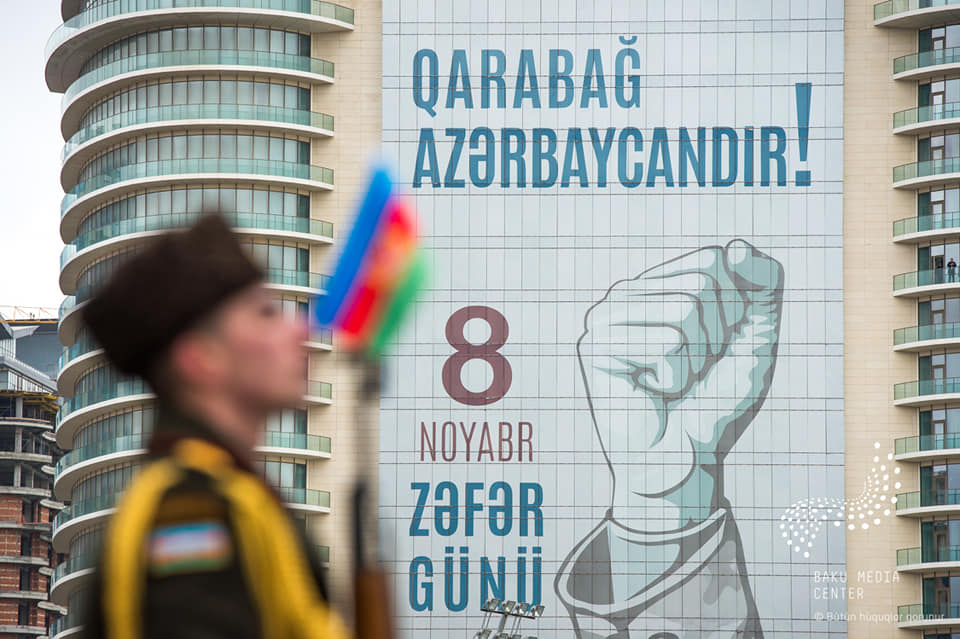NOVEMBER 8 — VICTORY DAY

On the morning of September 27, 2020, the Armenian Armed Forces began a large-scale provocation and intensively fired at the positions and settlements of the Azerbaijani army on the front line from large-caliber weapons, mortars, and artillery. The command of the Azerbaijani army decided to launch a rapid counteroffensive along the entire front. As a result of the clashes on September 28, martial law and general mobilization were declared in Armenia, and martial law and a curfew were declared in Azerbaijan. The clashes quickly flared up and escalated into the Second Karabakh War.
As a result of the 44-day war with the Republic of Armenia, Jebrail was liberated on October 4, Fizuli on October 17, Zangelan on October 20, Gubadli on October 25, and Shusha on November 8. According to the agreement signed in Moscow from November 10 at 01:00 Baku time, hostilities were completed and fire ceased in the zone of the Nagorno-Karabakh conflict. The Republic of Armenia undertook to withdraw all its troops from the territory around Nagorno-Karabakh by December 1. It was announced that the construction of new transport communications connecting the two countries will be ensured.
Aghdam was liberated on November 20, 2020, Kalbajar on November 25, 2020, and Lachin on December 1.
The first decree of the President of Azerbaijan on the establishment of Victory Day in Azerbaijan was issued on December 2. According to this order, Victory Day was to be celebrated annually on November 10. However, given that November 10 in Turkey is the day of memory of Mustafa Kemal Ataturk, on December 3, President of the Republic of Azerbaijan Ilham Aliyev decided to change the date of Victory Day. Considering the historical significance of the city of Shushi and its liberation from occupation, it was decided to celebrate Victory Day on November 8 every year.
Note: since 2006, when a public holiday falls on a day off, the next business day is considered non-working.



